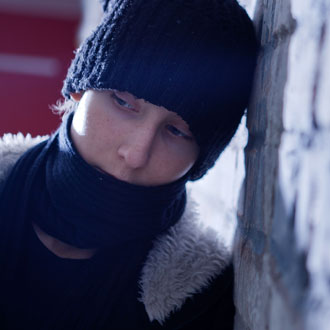Exclusive An increasing number of vulnerable children are being refused vital mental health treatment that is recommended by their GP, finds a major Pulse investigation.
Figures obtained from 15 mental health trusts reveal that 60% of GP referrals to child and adolescent mental health services (CAMHS) lead to no treatment and a third are not even assessed.
The situation for young people with mental health issues appears to be worsening, with the numbers of referrals that progress to treatment decreasing from 44% in 2013 to 39% in 2015.
GPs told Pulse that CAMHS were refusing to treat patients unless they had attempted suicide or self-harmed. Many cases are being sent to school counsellors or charity services, when GPs have requested specialist input.
The figures come despite Government promises to increase access to mental health services for children, with an increase in funding of £1.4bn and a call to all regions to produce plans on how they are going to work together to improve CAHMS services.
The freedom of information requests to mental health trusts found that in Norfolk and Suffolk NHS Foundation Trust the number of CAMHS referrals progressing to treatment was 20%, down from 46% in 2013. At Leeds and York Partnership NHS Foundation Trust the proportion treated fell from 42% to 26%.
Dr Karen Cox, a GP in Bristol, said: ‘Recently all referrals seem to get bounced. They’ve included children who self-harm, a child who was physically abusing his mother and a child with severe night terrors after the loss of his father. All of them were advised to contact local charitable organisations.’
Dr Dominique Thompson, a GP in Bristol with special expertise in young people’s mental health, said the findings show the system is ‘failing the next generation’.
She added: ‘We risk our CAMHS becoming a source of national shame if they continue to be so poorly resourced.’
Dr Faraz Mughal, RCGP clinical fellow for young people’s mental health and a GP in Solihull, told Pulse that often charities and school counsellors are not the right people to be treating these children.
He said: ‘GPs are at the frontline of the NHS and treat so many young people with mental illness, and are trained to identify their needs. If they think further expert input is required then GPs really need to be supported in that.’
NHS England chief executive Simon Stevens last month told the NHS Confederation conference that CAMHS was the ‘most creaking’ part of the NHS mental health sector.
A Department of Health spokesperson said: ‘No child who needs help should be refused it. That is why we have introduced the first-ever mental health access and waiting time standards and are putting in a record £1.4bn to transform support for young people.
‘This investment is just beginning, so will be making an increasing difference in the years ahead – every area in the country has produced plans on how they are going to work together to make sure young people get support before they reach a crisis point.’
Pulse October survey
Take our July 2025 survey to potentially win £1.000 worth of tokens













